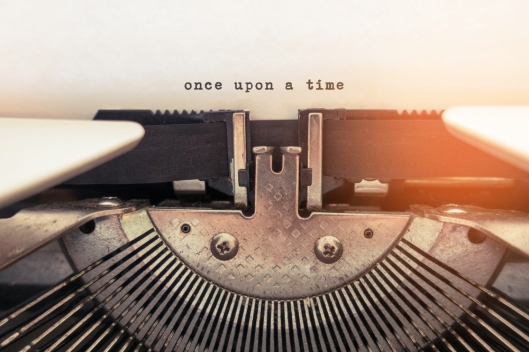Tags
authortoolboxbloghop, challenges, character building, character development, tips, tricks, writing, writing is hard, writing process

I was heartbroken to realize that I lost track of time last month and missed out on #AuthorToolboxBlogHop, but I’m hoping that Raimey Gallant will be a benevolent host and let me back in because I had so much fun reading and writing these last year. Check out the main link to see what other writers have to offer!
I’ll be honest: I don’t really spend very much time thinking about characters’ backstories.
Not because I don’t care about them – really, it’s more of the opposite problem. I’m the kind of writer who thrives on worldbuilding, on planting a seed and then watching and trying to keep up as the resulting plant takes over the garden. I consider myself a pruner, to keep the gardening metaphor going. I encourage particularly promising growths and try to cut off dead weight but otherwise, I tend to sit back in my mind and let things bloom as they will. By the time I’ve got anything resembling a plot, my characters have usually already assembled a host of likes, dislikes, memories, quirks, friends, enemies, and stories. All I have to do is figure out how to turn them into a cohesive narrative.

Pictured: not my writing style
It ties into an idea that seems to be pretty common in writing communities: that characters and worlds are entities unto themselves, that they develop and grow naturally, that an author needs to be able to step back from time to time and let her characters express themselves.
I’ll admit, I’m partial to that idea. It certainly feels reflective of my writing process.
But I had one of those lightning-bolt realizations the other day: having fleshed-out characters isn’t enough.
This came to me after reading a facebook exchange between two aspiring writers. One of them was struggling to write characters, having difficulty connecting with their characters and connecting them to the plot, even though most of those characters had rich and vibrant backgrounds. The other writer asked a shockingly simple question: what do those backstories have to do with the plot of your novel?
I’ll admit, I forget what the first writer answered, because I was too busy being floored; I’ve been struggling with one of my protagonists lately. I know his story inside and out, I understand his motivations, his aspirations and his fears … I just haven’t been able to write him properly. And the moment I thought about it, I realized that none of those things had anything to do with the narrative I was weaving – which meant that every time I wanted to connect something back to him I had to step outside of the story to explain, explain, explain.
Which is pretty much the easiest way to kill a nascent novel.
The fact of the matter is that as precious as our characters are, they are tools that writers use to tell stories. There’s nothing inherently wrong with letting a character come to life in the back of your head and then following them around as they go about their business. A lot of books do just that, and if the character is interesting enough and the world they’re exploring is vivid enough it turns out fine. Often, though, the spark just isn’t there and the story seems flat, confused, indulgent, or just plain boring.

“I’ve looked into a mirror and described myself … now what?”
That’s especially true for writers who are trying to craft a specific story. When we’re focusing on the plot like I’m trying to do right now, we don’t have the luxury of carrying around half a dozen irrelevant backstories. I’ve rambled before about how writers shouldn’t obsess over brevity, but every word should still be moving the reader toward our ultimate goal.
So I had a character who was a hundreds-of-years-old fairy knight who risked everything for true love when he fell in love with a mortal woman. Being mortal, though, his true love eventually died and his queen refused to take him back, stripping him of most of his powers. He’s been wandering around for the past several centuries trying to stay under the radar, afraid to make a connection for fear of what it might cost him.
Great.
But what does that have to do with the novel that I’m actually trying to write at this moment?
It turns out that it doesn’t, really, except to give some context for why he’s always a gloomy jerk. Now, context is important, because I really want readers to sympathize with him. Unfortunately, in this case, I just ended up with a character who constantly needed to interrupt the action to talk about things that happened to him hundreds of years ago. Which makes him a gloomy, self-absorbed jerk, and no wonder I couldn’t write him for beans.
In the last month, I’ve gone back and rewritten his history so that he has a connection with the main villain – but I don’t think it has to be that obvious. Maybe a character’s history mirrors the present situation in some way and the way they handled it in the past impacts how they deal with it now. Maybe they’ve burned bridges that they find they now have to cross or swore they’d never do something that needs to be done.

Bored hipster chick does not care about your feelings about your long lost father.
Whatever it is, though, it needs to be direct and it needs to be immediate. A trick that I’m trying to use right now – every time I’m about to go into an element of backstory, I imagine another character saying: “So why are you telling me this?” If my character can’t think of a good reason to be bringing it up, I probably need to make their history more relevant.
I don’t like doing this. For one thing, it feels kind of callous to start hacking and slashing characters I’ve been building (I almost said ‘working with’ there) for years. For another, it goes against my image of writing being this organic, free-flowing process that blossoms like a swan, or whatever. As calculating as I can be, apparently I’ve still got that little glimmer of romanticism in me.
At the end of the day, though, characters have jobs to do just like the rest of us. They need to keep up – or find out first hand what it means to ‘kill your darlings’.


Of course I added you back in. Dude. Okay, now I’m going to scroll back up to read your post. 🙂
LikeLiked by 2 people
I mean, I wasn’t really worried, but it’s better to be safe than sorry! 😀
LikeLiked by 1 person
I think a few characters had this problem in my first book. It’s like dumping two jigsaws on the floor and jamming them all together. 🙂 Great post!
LikeLiked by 1 person
I really like that analogy! I actually was looking for pictures of jigsaws for my splash pics, but then I thought it was too obscure … Apparently not!
LikeLike
Sometimes torturing your characters until their backstories mixes well with the current story works really well 😉 Great post. I like the premise of the faery knight… so finish your book so we can read it!
LikeLiked by 1 person
I’m working on it!!
Especially now that I can write my damn MC.
LikeLiked by 1 person
Your post sparks thought. I know I have a tendency to use backstory to “explain” a character rather than have them live out their role in my novels. I fight it all the time. I recently went back and ripped out the prologue from my current novel. I’ve decided I don’t like prologues. They have a tendency to foster backstory at the expense of experiencing the characters in the novel.
LikeLiked by 1 person
I think you’re right for about 98% of prologues. Every now and then something will happen that readers need to experience firsthand, as it were, but the VAST majority of the time there are better ways to do it.
LikeLiked by 1 person
I used to be like this–I would map out a character’s backstory down to their favorite color and what kind of music they liked. Then I realized, most of these things would never even get into the story. These days, I tend to just jump in with a sketch of what the character is like and let them fill in the picture for me as I write. It’s not a bad thing to know your character, but you don’t need to know everything. Just like in real life, we don’t know every single detail of our friend’s lives, but we know why we like them and why they’re our friends, and that’s what’s important.
LikeLiked by 2 people
I like the ‘friends’ analogy! I find I work best when I have a series of keystone events established, so that I have somewhere to go back and reference when a new thing happens to a character, but trying to fill all of the blanks too early just makes characters feel cluttered – and, as you said, so little of it is ever relevant.
LikeLike
Well, our characters have to have a deep, dark reason why they behave the way they do and make stupid choices, but we don’t have to clog up the story with it. Anymore than I’d tell my friends, “I don’t know which restaurant to pick because my mother made all my choices for me and I never learned to make a decision on my own.” (example only. I’m quite capable of deciding between Chinese and Italian).
I start writing with one good reason my characters are so warped (being a 6’2″ baron’s daughter when all the duke’s sons marry petite blondes) and then discover more as I write. I need to know more about their background, but the reader doesn’t.
Thanks for sharing. It’s always good to get another writer’s perspective.
LikeLiked by 1 person
Reading your comment actually made a couple of things click for me; it’s a little bit like going to therapy. It’s a lot easier to handle life if you know where your feelings are coming from, what issues or hangups you’re still holding on to – but at the same time, as you said, I don’t go around telling everyone that I don’t drink because I didn’t like what it brought out in my father. (also an example) And everyone knows that one person who just “discovered themselves” and won’t shut up about it. It’s about having enough of the right knowledge, and figuring out when to share it and when to just work with it quietly in the background.
LikeLike
There are some of my stories where the character’s backstories are important and lend to the story, so I know a lot of their history and details before I begin writing. For others, I have what I need to know about my characters and then let the rest come out as I write. I tend to enjoy that more because things will pop into my head that makes perfect sense for my character and the storyline. 😉
LikeLiked by 1 person
I definitely agree with you there! I try to keep things as open as I can when dealing with secondary characters, so that I can take advantage of opportunities as they come up organically. That way, I don’t have to go back and change things that I only had in as filler anyway.
LikeLike
Great post. I adore writers sharing lightbulb moments. Personally, I am all about character backstory although I think I naturally build it with an eye toward plot.
However, I love your romanticism of organically growing a world and your characters. I think it is important. We are more than the backstory that leads us through an arc of our lives, and I like to think our characters should be more than the pertinent backstory. That said backstory not related to the plot doesn’t belong in that story (but maybe a different one).
LikeLiked by 1 person
Most of my Author’s Toolbox posts are lightbulbs in some form or other. ^^;
It’s definitely tricky to balance those two opposing sides of my writing style. I construct my plots very methodically, but I’m only recently discovering how important it is to start reining in character growth before it gets clumsy and unproductive.
LikeLike
I like that question, “so why are you telling me this.” It really helps decide if it matters in the situation or not. Great post 🙂
LikeLike
I love the tip of imaging a character asking another “Why are you telling me this?” I’m going to use this. Thanks.
LikeLiked by 1 person
The best part of that is picturing the backstory character standing there stupidly trying to justify an answer. 🙂 I hope it works for you!
LikeLiked by 1 person
Excellent post! I have a difficult time with character backstory before writing a novel.
I didn’t figure out the backstory for my antagonist in my current novel until I wrote the last few chapters. I didn’t even know his name until then, either!
LikeLiked by 1 person
I’ve been changing names all over the place as I write! Different things seem more or less appropriate as the story progresses, so I feel you there.
LikeLiked by 1 person
Sometimes, I just do a heck lot of research to develop backstories for my characters that have no relevance to the novel itself. Most of the materials go unused but it’s still fun to dream them. Writing novels become so structured once you aim for a career in it that the backstories act as relief.
LikeLiked by 1 person
To me the link would be he meets the love of his life again, or least thinks he has. Time makes history misremembered, romanticized and warped. Just sayin’…
Anna from elements of emaginette
LikeLiked by 1 person
That would be great if that were happening in this novel, but it isn’t. :S
LikeLiked by 1 person
Great post! I’ve been working on not adding too much backstory into my currents WIP -readers only need (and want) to know enough for the story to make sense. Thanks for sharing!
LikeLike
Backstory comes into play when the character is trying to make sense of something going on in the story present. Characters, just like people, use their past to make sense of their present.
Thanks for sharing this with your readers. I’ll follow your blog and be sure we’re connected online.
http://victoriamarielees.blogspot.com
LikeLike
I’m very much the type of writer who makes a rough sketch of my characters before I start, and then I let them fill in the details and color themselves in as they go. I wasn’t always that way though–I used to fill notebooks with the useless backstories of characters. It’s very good advice. “What does that have to do with the story you’re telling.” If it’s nothing, you’re just wasting time you could be writing!
LikeLike
It’s interesting, I have the opposite problem; I have a tendency to use the characters as tools to get the story moving, and don’t know enough about their backstory to make a cohesive narrative. I think I’m improving, but I feel like I’ll need to overcorrect in order to find the proper balance between character backstory and keeping the plot moving forward. Thanks so much for sharing your experience!
LikeLike
Good point and tips! I hadn’t considered whether or not my backstory was relevant to my story. There’s a lot of it, and I’ve even written whole flashback scenes. I’ll have to remember to ask myself whether or not they’re necessary 🙂
LikeLike